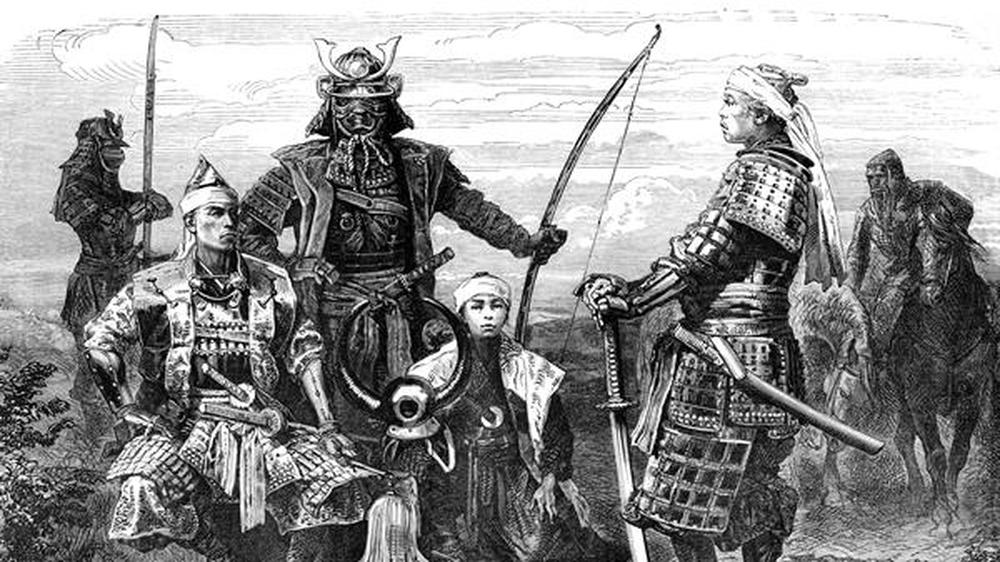WEEK #12 (October 30th-November 3rd)
Monday: Today began our discussion on the Feudal Structure of Japan HERE
Tuesday: We discussed the history of Japan HERE
Wednesday. We brought in our paragraphs and help each other to improve our writing levels
Thursday: We continued our presentation from tuesday
Friday: We watched a crash course video on the eventual death of Feudalism and completed our graphic organizers
Turnitin Directions
Class ID 16693252 World History Period 2 Class Key WHistory2
Class ID 16693266 World History Period 3 Class Key WHistory3
Week #12 Homework:
Week 12 Notes
Feudalism in Japan
*Social and religious are very similar - influenced by Butism*
*salary - Romans were paid in salt*
Monday: Today began our discussion on the Feudal Structure of Japan HERE
Tuesday: We discussed the history of Japan HERE
Wednesday. We brought in our paragraphs and help each other to improve our writing levels
Thursday: We continued our presentation from tuesday
Friday: We watched a crash course video on the eventual death of Feudalism and completed our graphic organizers
Turnitin Directions
Class ID 16693252 World History Period 2 Class Key WHistory2
Class ID 16693266 World History Period 3 Class Key WHistory3
Week #12 Homework:
Week 12 Notes
Feudalism in Japan
- Emperor (pope)
- Emperor and imperial family highest on social ladder
- Born into position
- Religious leader
- Direct descendant of Amaterasu Omikami
- Figurehead (leader in name only)
- NO political power
- Under control of shogun’s clan
- All classes of society provided for emperor and his court
- Emperor still exists today
*Social and religious are very similar - influenced by Butism*
- Shogun (marshall)
- Military leader
- Highest in warrior class
- Lived under bushi rule ? (Japanese chivalry)
- Clans fought to acquire this status
- Political leader
- Those of other classes under him provided for his needs
- Shogun gave protection and privileges
- Portion of land
- Produce on land
- Daimyo (oldest son)
- Part of warrior class
- Means “great names”
- Shogun’s representatives
- Ran estates according to shogun's rules
- Swords most valuable possessions (family sword)
- Folded in on themselves - DO NOT BREAK
- Used often to demonstrate loyalty to shogun - killing and fighting
- Lived in huge castles surrounded by moats
- Samurai
- Professional warriors
- Loyal to shogun and daimyos
- Lived in daimyos castles
- Fairly high social status but little political power - don’t own land, enforce laws
- Needs met by lower classes than them
*salary - Romans were paid in salt*
- Ronin
- Result of death of a samurai’s Daimyo
- Wandering samurai (masterless)
- Master of fighting - no clan = no respect
- Had no daimyo
- Paid soldiers
- Worked as
- Bodyguards for rich merchants
- Paid soldiers during civil wars
- Low social class
- No political power
- Depended on others for economic well-being
- Peasants
- Largest class
- Included farmers and fishermen
- Low social status
- No political power
- Very poor
- Valued because they produced food for all other classes
- Often made material for clothing
- Paid taxes with rice and work
- Had to pay ⅔ of year’s crop to upper classes
- Often starved
- Artisans
- Craftspeople who made variety of products
- Art
- Cooking pots
- Fish hooks
- Farm tools
- Theatre
- Ship anchors
- Swords
- Great sword makers highly respected
- On whole, however, artisands not as respected as peasants because they didn’t produce food
- Craftspeople who made variety of products
- Merchants
- Sold goods and produce made by others
- Very low social status
- Produced nothing of value and lived off the efforts of others’ work
- Trade was just not very important - so neither were the people
- Often made to live in separate locations
- Not allowed to mix with other classes except to do business
- ETA
- Means “full of filth”
- Discrimination because of Buddhist prohibitions against killing and shinto concepts of pollution
- Originally discriminated against because they were butchers, leatherworkers, grave diggers, tanners, executioners
- Seen as hereditary
- Still discriminated against today
- Major religions of Japan - Shinto - concepts of pollutions
- Hinin
- Means “nonhuman”
- Not hereditary, but punitive (punishment)
- Was very extremely small chance you could get out of this class… if you were pardoned… but this is highly highly unlikely

